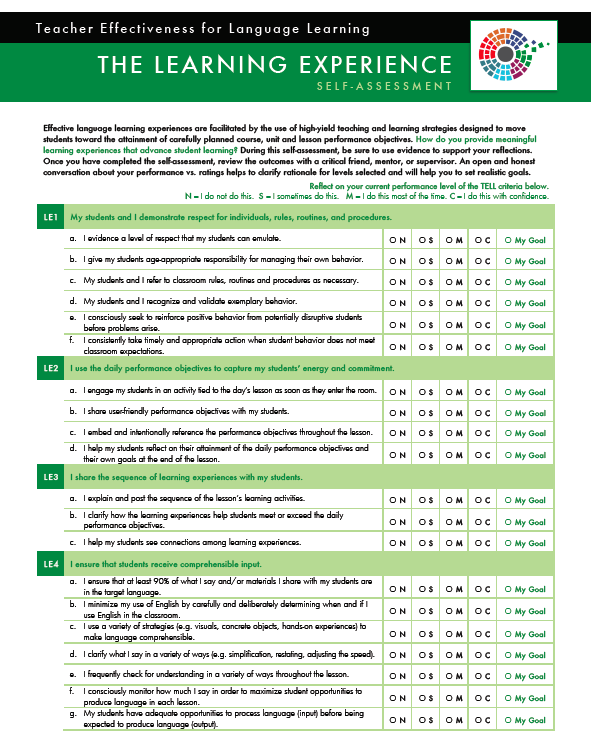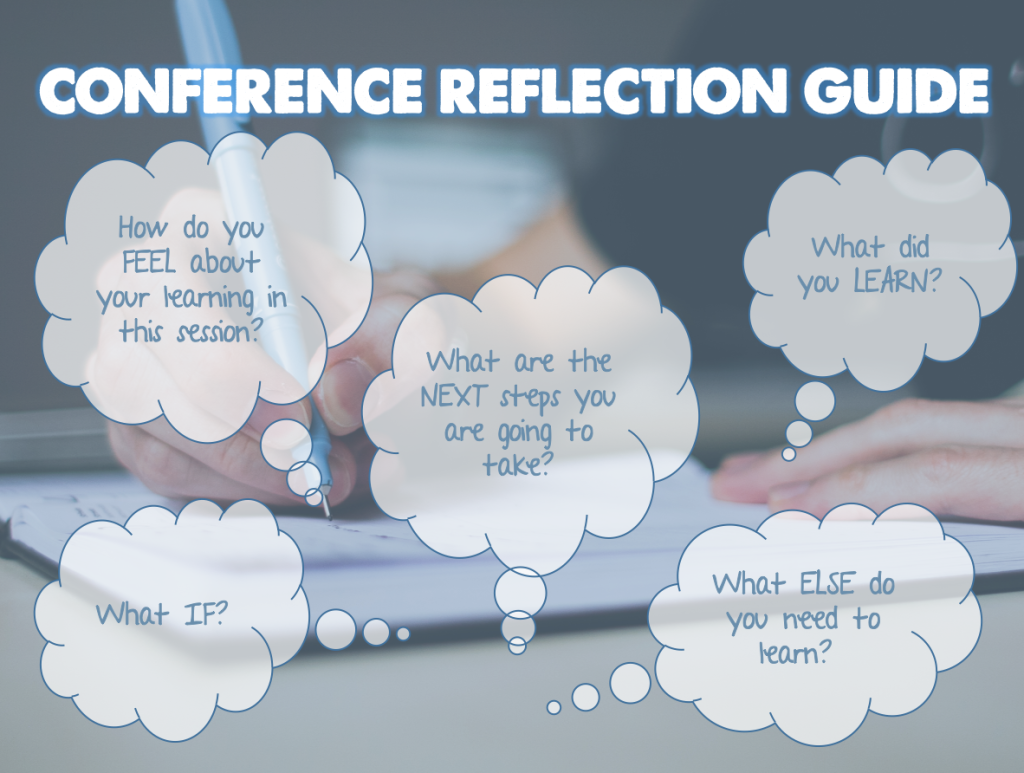There is not a doubt in my mind that attending professional conferences early in my career has strongly influenced my beliefs and practices as an educator. I can still recall the intellectual cloud nine I would be floating on after returning from a conference. There is a giant pile of free bags stuffed with handouts and materials that I picked up at each conference. Did I use any of it in my own teaching? Not likely. And yet it made a difference. Of course it’s 2015 and going to a conference doesn’t quite have the same appeal anymore as it did 10-20 years ago. In 2015 I can find handouts, materials and resources any day of the week just by opening up my #langchat tab on the computer or browsing the many amazing world language teacher blogs. Why do I still go and how can you get even more value out of a conference? Well there is just something to be said about having a face-to-face conversation. To ensure you have a bunch of those conversations, allow me to share my conference plan with you.
Step 1: Set some professional goals for yourself.
Even if you did this at the beginning of the school, now is probably a good time to take stock of where you are as a teacher this year. Taking one of the many TELL (Teacher Effectiveness for Language Learning) self-assessments will provide you with a pretty good picture of who you are as a world language teacher. Be sure to really think about your answer. Remember this is a self-assessment and not an evaluation. Be honest with yourself and try to think about it this way: Where is the evidence in my work that I’m meeting one of these TELL criterion. If you can’t think of the evidence, you probably aren’t doing it. Once you have completed the self-assessment set a couple of goals for yourself. Research says that anything more than two goals is not realistic and you’ll likely end up not meeting any of them. What is your goal for THIS conference?
Step 2: Read the conference program with a critical eye.
It’s easy to get overwhelmed by conference programs these days, especially if it is a big national or regional conference. Hundreds of sessions and you just keep thinking if you pick one, you’ll miss something amazing by not going to another. Most of us pick sessions about topics that we already know something about. I’m good at xyz, I’m going to go to xyz session to learn more about it or to validate what I already know. Some of us, pick sessions based on the names of the presenters. I heard so-and-so is a great presenter, so I’ll go and see so-and-so. The problem with identifying sessions this way is that you’ll end up in a session given by so-and-so talking about xyz and even though you may learn something and are engaged in the session, it’s not helping you become a better teacher because it’s not connected to the goal you identified. Instead mark only those sessions in the program that will actually help you reach your goals and provide you with just the right input to improve your practice. If you are trying to use more target language more of the time, then only go to those sessions. If you are trying to provide your learners with better feedback, then only go to those sessions. Just because so-and-so is a popular speaker, doesn’t mean they can help you learn. Don’t feel like you are missing out by not going to his or her session. Likely, so-and-so will be back next year and who knows what your goals will be by then. And if you don’t want to know what you are “missing” how about just using the search feature on a conference program since so many of them are now shared digitally or via a mobile app. Not only will you find the session that you really need, but you will save some time reading the program.
Step 3: Skip a session.
This is going to be a hard one, I know. You or your school paid a lot of money for you to attend the conference and you are determined to get as much input as possible from every single session that is offered. You are running up and down the stairs from session to session and squeezing in some time in the exhibit hall hoping to score a free poster for your classroom. Unfortunately, most conferences don’t organize their schedules in a way to allow you even a moment to breath, never mind think and process what you have just learned. Sure, you can say you are going to implement that awesome idea you just learned about in the session next week or next year, but without taking the time to reflect on your new learning that idea will quickly fall into the darkness of your overflowing teacher mind and you’ll end up not implementing any new ideas. After you have attended a session, sit down for a few minutes and try to answer these question:
- How do you FEEL about your learning in this session? What is your emotional response? Are you excited about the possibilities? Are you uncomfortable with what the presenter was suggesting? Are you scared about what this could mean for your teaching?
- What did you LEARN in this sessions? Even if you took notes, or got a comprehensive handout, try to draw out some of the larger lessons or principles from this session, learning both from the actual experience, as well as your emotional responses to it.
- What if? How does what you’ve learned tie back into your teaching situation? Consider how you might apply it when you get back home.
- What are the NEXT steps you are going to take? Consider what actions you’ll take next as a result of your learning and reflection. Identify at least one next step you will take in your teaching situation. Consider how you will know that you have been successful in your implementation of a new idea.
- What ELSE do you need to learn? Now that you have a micro plan what else do you need to learn about this idea? Are there other sessions that you could attend to help you get a better understanding? Do you need to revise your schedule and find a different session?
Step 4: Be social.
Probably one of the biggest benefits of attending a conference, aren’t necessarily the wonderful sessions, but meeting so many people who are there for the same reasons as you are: to be better teacher. But not just any teacher: to be a better world language teacher. Take advantage of this incredible opportunity to meet new friends, reconnect with old ones and just be empowered by being with like-minded people. There is no other professional rush, then hanging out with other teachers. And if you are not the chatty type, consider meeting people via social media. Twitter has made it so easy to connect teachers from all around the world, you should connect with other conference attendees. Who knows, they might even invite you to meet for a real cup of coffee.
On a personal note: it’s no secret that I’m not the biggest fan of conferences. I have even called conference programs the big book of opinions. Most presenter would like you believe that their idea is the greatest one since sliced bread and if only you do it exactly as they did it with their level 2 kids, you will be successful too. There are no magic bullets and no secret sauce to language teaching. Just because an idea is being shared at a national conference doesn’t mean it will work for you and for the learners entrusted to you. I’m hoping that by using the steps outlined above, you will try to personalize your conference experience by setting goals that are meaningful to you, find sessions that will help you reach your goals, and then reflect alone and perhaps with others on the new learning. Can’t wait to see you at a conference!

